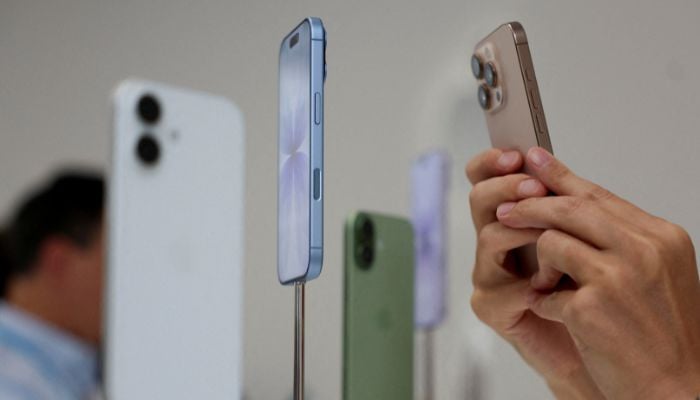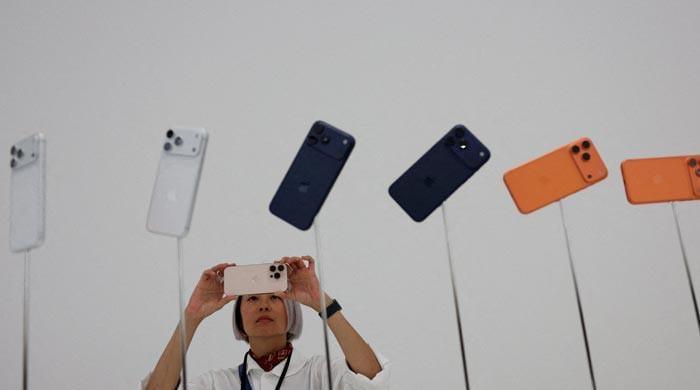Apple has unveiled its iPhone 17 range, featuring its thinnest smartphone, because the technology giant works to prove that it can keep the pace in the AI generative race.
The power of Silicon Valley organized its annual iPhone release event in the middle of increasing pressures: the White House pushes the company to reduce its dependence on Chinese manufacturing, while investors wonder if Apple is really ready for AI age.
Adding to these challenges, the company faces contrary winds of the high pricing policies of President Donald Trump. Apple’s shares fell by more than 3% since the Republicans took office in January.
In this context, Apple bets on a product which, in hope, will trigger a super iPhone purchasing cycle and reverse the trend of customers who keep their devices longer before upgrading.
“The event shows that Apple has bypassed the heart of the AI arms race while positioning itself as a long -term innovator on the front of AI equipment, with integration at the level of silicon and the device,” said Gadjo Seville, Emarketer analyst.

To invigorate its brand, Apple presented the iPhone 17 air, which CEO Tim Cook called “a total game changer”.
Only 5.6 mm thick (less than a quarter of a thumb), the $ 999 device includes the new A19 Pro processor of Apple – its most powerful iPhone chip to date – and promises a day’s battery life with up to 40 hours of video reading.
The air joins the more standard Apple range, including the premium iPhone Pro 17, the most expensive and efficient model of the company.
While all new devices incorporate generative AI technology, Apple has made no major announcements on the expansion of its AI capacities beyond updates to existing features in its “Apple Intelligence” suite.
The company’s push of the company had struggled to gain ground since its launch of “Apple Intelligence” at the end of last year. Users were particularly disappointed with improvements to Siri, which remains surprisingly basic despite years of promise.
Apple would have planned to integrate AI into online research next year and revise Siri, although the company has not confirmed these reports.
The technology giant would also be in partnership with Google to use its research and expertise in AI.
“To really differentiate and smoke the competition, Apple will have to do an AI as a contextual user interface” on its aircraft, said Forrester analyst Thomas Husson, in a note.
“The execution of such an ambitious AI strategy will take time. It will only happen as next year, except for the 20th anniversary of the iPhone” in 2027, he added.
Swivel
Industry analysts see iPhone air as a strategic pivot, with an ultra -thin Apple positioning design – rather than larger screens – like its new premium sales argument.
Super-clien’s profile could also pave the way to Apple’s long-term foldable iPhone, expected next year. Samsung and Chinese Huawei already offer foldable smartphones.
However, the engineering of such thin devices presents challenges: higher production costs and a reduction in battery space, although Apple claims a 24 -hour battery life for iPhone 17 air when it is completely loaded.

Despite the prices that increase production costs, Apple has maintained the unchanged iPhone prices compared to the equivalent models from last year – a decision that could cause beneficiary margins.
Cook revealed in July that Trump prices cost the Apple dollars in the last quarter, with an impact estimated at $ 1.1 billion expected this quarter.
Apple’s shares fell 1.40% after the prices are announced, reflecting investor concerns concerning the company’s capacity to maintain its beneficiary margins.
Apple has also introduced the AirPods Pro 3, with an improved noise cancellation and real -time translation capacities, as well as the Apple Watch Series 11 series, which includes 5G connectivity, an extensive battery life and cardiac health monitoring characteristics while waiting for regulatory approval.




